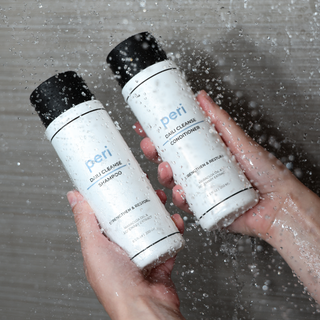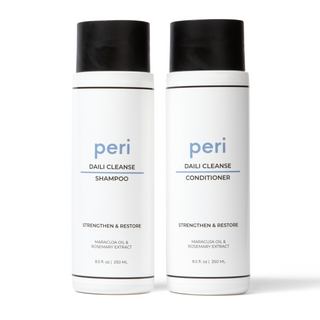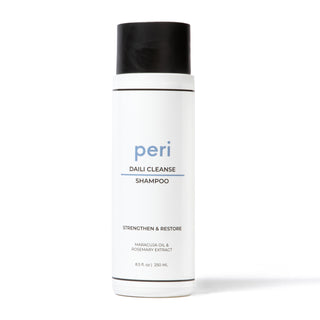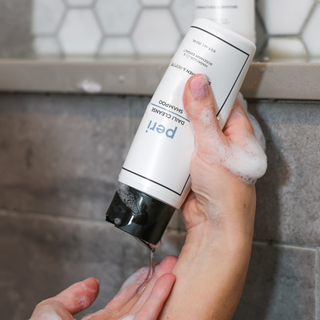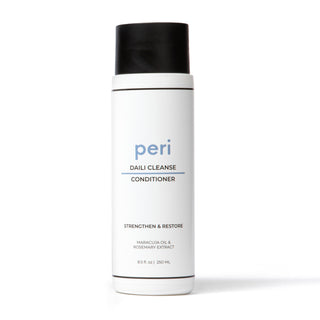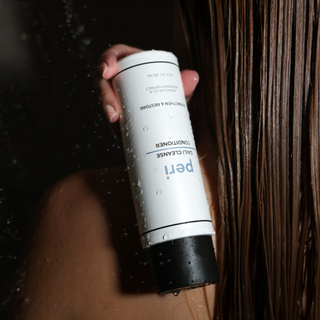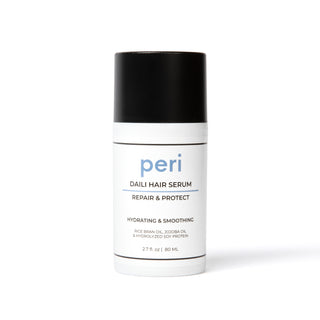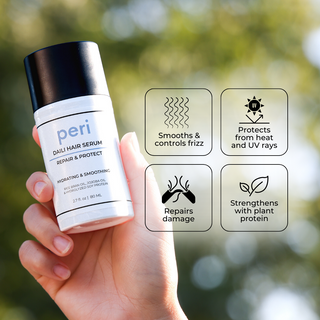In the world of hair care, we're often bombarded with products promising stronger, healthier locks through the power of protein. Proteins, indeed, play a crucial role in maintaining the integrity of our hair, but it's possible to have too much of a good thing. Overusing protein-based hair products can lead to a host of issues, including dryness, breakage, and stiffness. In this blog post, we'll explore the potential problems with excessive protein use and why plant proteins present a healthier, more balanced alternative.
The Role of Protein in Hair Health:
To truly understand the significance of protein in hair care, it's essential to delve into the science behind it. Our hair is primarily composed of a fibrous protein called keratin, which consists of amino acids and plays a vital role in maintaining hair's strength and structure. Here's a closer look at what protein does for hair and why it's crucial:
-
Keratin's Structural Role: The primary function of protein in hair is to provide structural support. Keratin forms a strong, flexible matrix that gives hair its characteristic strength and elasticity. It acts as a scaffold, holding the hair's shape and preventing it from breaking easily.
-
Amino Acid Building Blocks: Proteins are made up of amino acids, which are the essential building blocks of hair. These amino acids form strong chemical bonds within the hair shaft, enhancing its resilience.
-
Repair and Growth: Protein is essential for repairing damaged hair and promoting healthy hair growth. When hair is damaged due to factors like heat, chemicals, or environmental stressors, protein treatments can help mend and reinforce the hair structure.
-
Moisture Retention: While moisture is crucial for hair health, protein also plays a role in maintaining the hair's moisture balance. Properly balanced protein helps the hair retain moisture, which is essential for softness and manageability.
-
Protection from Environmental Stressors: Proteins in the hair act as a natural defense mechanism against environmental stressors like UV radiation, pollution, and free radicals. They form a protective layer around the hair, reducing the risk of damage and color fading.
It's clear that incorporating protein in your hair care routine is essential. But, overusing protein can lead to problems. This is where plant-based proteins, with their gentle, naturally balanced composition, offer a healthier and more sustainable solution. By understanding the science of protein in hair, you can make informed choices to ensure your hair remains strong and beautiful.
The Pitfalls of Overusing Protein
While protein is undeniably important for healthy hair, using too much of it can lead to unintended consequences:
-
Excessive Dryness: Overloading your hair with protein can result in excessive dryness. This is because proteins can have a drying effect, and when used excessively, they can strip the hair of its natural moisture, leaving it brittle and prone to damage.
-
Brittle Hair and Breakage: When hair becomes excessively protein-heavy, it can become stiff and brittle, leading to increased breakage. This is especially problematic for those with fine or already damaged hair.
-
Loss of Elasticity: Hair needs a balance of protein and moisture to maintain its elasticity. Overusing protein can disrupt this balance, leaving your hair inflexible and more prone to snapping.
-
Buildup and Residue: Protein-based products can leave behind a residue on the hair, which may eventually lead to a buildup that affects both the appearance and health of your locks.
The Benefits of Plant Proteins:
As an alternative to animal-derived proteins, plant proteins offer a more balanced and sustainable approach to hair care:
-
Gentle Nourishment: Plant-based proteins, such as those from ingredients like quinoa, soy, and peas, can provide the necessary amino acids to strengthen hair without the risk of overdoing it. They offer gentle nourishment, improving hair health without causing dryness or stiffness.
-
Sustainability: Many plant proteins are sourced sustainably, making them an environmentally-friendly choice for those who want to reduce their ecological footprint.
-
Naturally Balanced: Plant proteins are often accompanied by other beneficial compounds, such as vitamins, antioxidants, and fatty acids, which can contribute to overall hair health. This natural balance makes plant proteins a healthier and more well-rounded choice.
-
Suitable for Vegan and Vegetarian Lifestyles: Plant proteins are an ideal choice for individuals who follow a vegan or vegetarian lifestyle, as they align with their dietary preferences.
While protein is an essential component of hair care, overusing it can lead to a host of problems, including dryness, brittleness, and breakage. Opting for plant-based proteins is a healthier and more sustainable alternative, as they offer gentle nourishment, environmental benefits, and a naturally balanced approach to hair care. To maintain healthy, vibrant hair, it's essential to strike the right balance between protein and moisture, and plant proteins provide an excellent solution to achieve this equilibrium. So, the next time you reach for a protein-rich hair product, consider the benefits of plant proteins to keep your locks looking and feeling their best.

